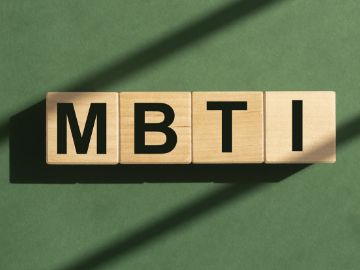What Are You Interested in and Why it is Important

Understanding yourself is vital for a job search. Learning to know what you want and don't want in your life is the work of a lifetime. Within the job search, understanding your interests is as important as understanding your self
Discover your interests to find what makes you tick. Put yourself on the right path to pursue employment opportunities that will excite you. Figuring out how to do this takes self-assessment, reflection, and honesty.
Find Your Interests
First, it is vital to understand the difference between interests and hobbies. They are closely related but entirely different in relation to a job search. Hobbies are regular activities done for enjoyment. Interests are passive curiosities to learn more about someone or something.
Discovering your interests is easy! It is not as simple as thinking that you like baseball or cooking, however. Take into account strengths, weaknesses and dislikes when you consider your interests.
Ask yourself these basic questions:
- What do you like?
- What don't you like?
- What makes you happy?
- What makes you sad?
- What makes you relax?
- What do you want to know more about?
- What are you looking forward to?
- What do you wish you hadn't done?
Put pen to paper and write down answers for each of these questions. Take the time to really answer them. Don't settle for simple answers. Give detailed responses, and really dig into your personality. Be honest and open even if there are some hard truths. Writing has a way of clarifying things.
Categorize your answers into two lists: things I like; things I don't like. Prioritize each list in ranking of importance to you. Understand which interests are most important to you and focus on them.
Be conscious to avoid your dislikes in your job search. Don't take a job if it is heavily associated with one or more of your dislikes. If you don't enjoy what you are doing, then you will be demotivated and regret that you took the position.
The "No Thank You" Factor
You are likely at a different stage of your career than the next person who reads this. It is essential to view your interests in the context of your own situation, whether that be at the beginning of your employment journey or nearing the end. Whatever your position, it's important to realize the opportunities to try new things while also being aware of the risk involved.
If you are early in your career and you have a diverse set of interests, it is worth broadening your job search to include a greater variety of jobs. Financial risk is lower at this stage of your career, which gives you the opportunity to try something new. If you seize an opportunity and enjoy it, then great! If you struggle to enjoy it, then it's ok to say, “no thank you” and then try the next thing.
As your career progresses, you may feel like some doors have closed in your job search. This is not the case, as you almost always have the freedom to say “no thank you”. As your career develops, it is easy to believe that making a change involves greater financial risk.
You may have to make a tough decision to not pursue an interest as a way of protecting your finances. Pursue new interests at a later stage only if you can afford to.
Different types of work offer different degrees of freedom. Study the chart below to see how the freedom to say “no thank you” correlates with the kind of work you do. If you are driven by your interests, consider alternative forms of employment.
Implement Your Interests
It is now time to implement your interests into your job search. Start by matching your interests with different jobs. Some may not provide as good an income as others, but if you value your happiness over money then it is worth including them. It is useful to understand what you are trading away for a paycheck.
If you have limited work and educational experience, emphasise your interests on your resume to demonstrate the kind of person you are. When a job posting aligns to an interest of yours, be strategic and attentive. Tailor your resume and cover letter for a specific job to prove to a recruiter that you are a strong candidate for the position.
If you have considerable professional experience, your interests can still be useful in your resume and cover letter, but less so. Employers are more interested in qualifications and previous achievements by this stage. This doesn't mean that you must hide your interests, however, as employers also value personality among their applicants.
Your Interests Are Valuable
Defining your interests and implementing them in your job search is a process that is essential to many people's career progression. You won't always find a job that perfectly matches your interests but there are opportunities available for you to enjoy your work. Demonstrate you have a real passion for the job in question to give yourself an edge over the rest of the applicants.



